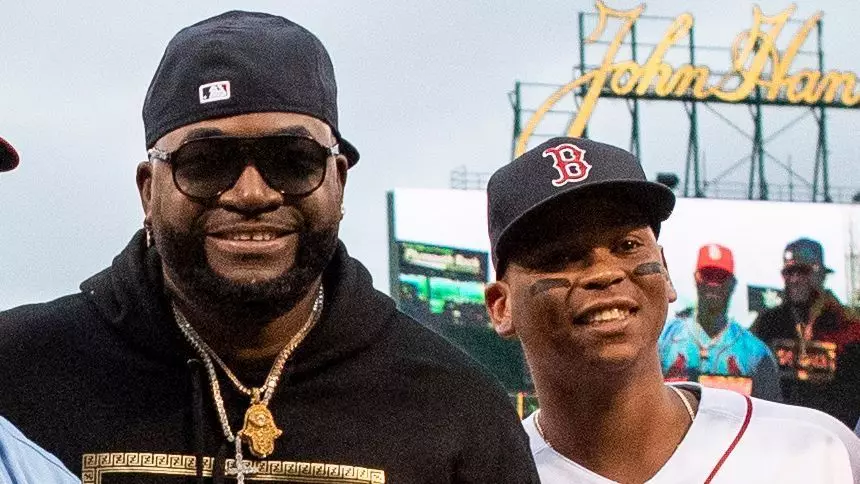In the world of professional baseball, few terms stir as much debate as that of the designated hitter (DH). This position has become a focal point of strategy in the American League, evoking varied opinions from fans, players, and analysts alike. Among the prominent voices in this discourse is Hall of Famer David Ortiz, renowned for his prowess as a DH during his own illustrious career with the Boston Red Sox. With the Red Sox grappling with key player injuries, Ortiz recently weighed in on the situation surrounding Rafael Devers, emphasizing an essential truth: the player’s agency must remain central to the conversation about his position and responsibilities on the field.
The current predicament arises after first baseman Triston Casas suffered a season-ending injury. Once considered a full-time DH, Devers now faces questions about his potential shift to first base. Ortiz’s remarks underscore a significant philosophical point—players should have the liberty to navigate their career paths, which are often fraught with pressures beyond the diamond.
Player Agency vs. Team Needs
At the heart of Ortiz’s argument lies the promotion of player autonomy over management’s immediate tactical needs. The Red Sox initially instilled confidence in Devers by assigning him solely to the DH position, a place where he has shown considerable talent. Ortiz believes that any transition to first base must come organically from Devers himself. He articulated a fundamental principle: “If Devers would like to practice at first base… that is all on him.” This commentary reflects a broader trend in sports where the mental and emotional well-being of players is increasingly prioritized over the whims of organizational strategy.
Athletes thrive when they can focus on their designated roles, which is why Ortiz resonably cautions against hastily implementing positional changes—particularly for a player like Devers who is still adjusting to the constraints imposed by a singular focus. Ortiz respects the intimate connection players have with their positions; it’s not merely about filling gaps but fostering competence and confidence.
The Evolving Landscape of Player Management
Ortiz’s perspective also reveals the evolving landscape of baseball management. He recalls a time when a player’s flexibility was the cornerstone of a successful career. Yet, in an era characterized by advanced analytics and specialized training regimens, the approach to player roles has morphed substantially. Devers is a case in point. After a slow start, he has emerged as one of the league’s premier hitters. Currently, his stats speak volumes as he leads in RBIs and maintains a solid batting average, illustrating the dividends of allowing a player to excel in a focused role.
Yet, Ortiz’s input raises many pressing questions about how teams balance individual aspirations with team dynamics. While Devers may ultimately be a talented first baseman, forcing this transition prematurely could hamstring his performance, disrupting a productive rhythm he has finally found as a DH.
The Heart Behind the Game
Beyond the statistics and positional debates, there exists a human element in sports that is often overlooked. Ortiz’s dual role as a former player and philanthropist shines a light on the need for compassion in the sport. His charity work through the David Ortiz Children’s Fund emphasizes that successful athletes wield significant influence. They are not just names and numbers but representatives of hope and change. This influence extends to how they are treated within a franchise.
The sentiment Ortiz expresses towards Devers points to a larger philosophy in sports: an athlete’s journey is laden with complexities that can’t merely be resolved through performance metrics and strategic movements. Ortiz’s understanding of this delicate balance augments his stance on allowing Devers the space to navigate his career path.
Ultimately, Ortiz doesn’t advocate for a rigid structure but rather for personal agency in the face of pressures. The ongoing dialogue surrounding Devers, though rooted in the immediate context of team dynamics, reveals deeper truths about autonomy, respect, and the fundamental nature of the game—as much about the heart as it is about the statistics. In allowing players the grace to choose their path, organizations not only foster talent but also cultivate enduring loyalty and passion for the game.

